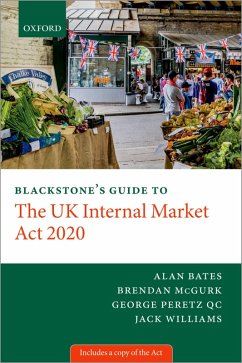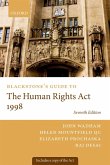The Internal Market Act 2020 provides the foundation for freedom of trade within the UK following Brexit. The Act is a central element of the UK's constitutional infrastructure. By enabling goods and services that are lawfully made or sold in one of the UK's four constituent parts to be marketed and sold across the rest of the UK, the Act exerts a practical brake on regulatory divergence, because higher regulatory standards imposed by legislation in one part of the UK may have little practical effect unless these standards are also adopted in the UK's other three constituent parts. The Act will therefore be a strong force compelling cooperation between the four legislatures' regulatory standards and will be a powerful tool for lawyers challenging regulatory rules. As well as impacting almost every area of business and trade, the Act also touches the lives of individuals and provides the UK Government with powers to fund economic and cultural activities on a UK wide basis despite the devolution settlement. This Blackstone's Guide explores the Act's provisions in a succinct and practical manner, supported by worked examples and comparative insights from EU internal market and competition law.
Dieser Download kann aus rechtlichen Gründen nur mit Rechnungsadresse in A, B, BG, CY, CZ, D, DK, EW, E, FIN, F, GR, HR, H, IRL, I, LT, L, LR, M, NL, PL, P, R, S, SLO, SK ausgeliefert werden.









